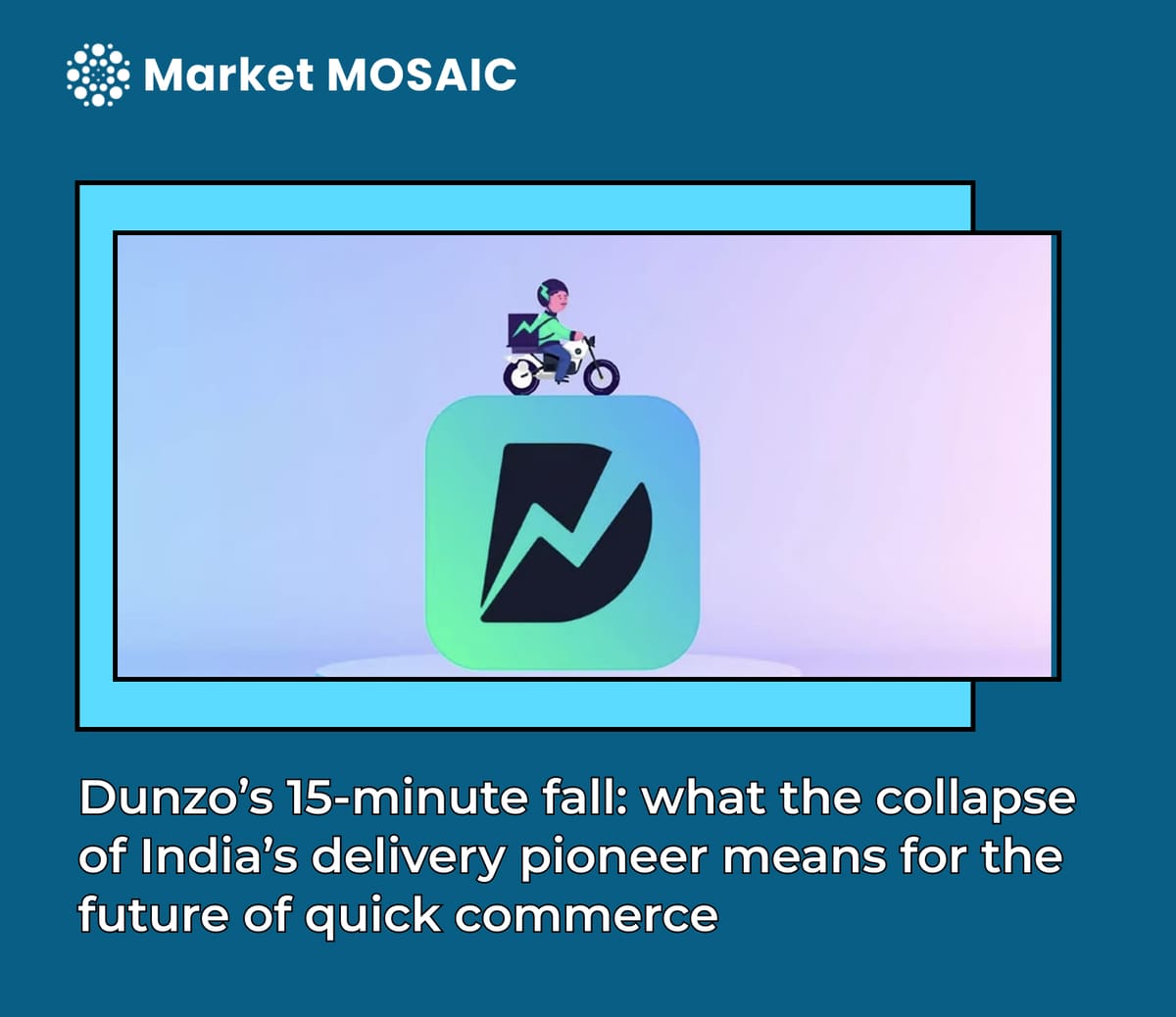Dunzo’s 15-minute fall: what the collapse of India’s delivery pioneer means for the future of quick commerce

In 2021, Dunzo was the face of convenience in India promising deliveries in under 15 minutes and redefining last-mile logistics. Backed by Google and Reliance, it embodied the promise of quick commerce: speed, convenience, and scale. By early 2025, the same company was collapsing under the weight of unpaid employees, abandoned warehouses, and investor silence. How did a tech-backed trailblazer fall so fast?
Dunzo’s story is not just a single company’s downfall. It’s a case study in how flawed assumptions about scale and speed can unravel even the most well-funded ventures.
The Business Model Breakdown
To meet consumer demands for instant delivery, Dunzo pivoted from its original errand-running model to a capital-heavy quick-commerce approach, relying on "dark stores"—warehouses designed to enable ultra-fast delivery at subsidized price. This shift required a dense network of fulfillment hubs and an expanded delivery fleet, creating an operational model with exceptionally high fixed and variable costs. To compete with players like Zepto and Blinkit, Dunzo scaled its logistics network aggressively. Every 15-minute delivery depended on tightly clustered warehouses, large delivery fleets, and a workforce operating on razor-thin margins.
Despite raising hundreds of crores in funding, Dunzo’s monthly burn rate reportedly crossed ₹100 crore (~$12 million USD). Without a clear path to profitability, the company became dependent on continuous capital injections to survive.
By 2025, investor appetite waned. As funding across the tech sector dried up, Dunzo could no longer sustain its capital-heavy operations. Dark stores began closing. Salaries were delayed. Worker morale collapsed. The brand’s trust with customers and employees eroded in weeks. The data behind Dunzo’s fall reveals a crucial truth, speed without sustainability is a risky gamble. This wasn’t only just Dunzo. Market reactions followed swiftly. Zepto adjusted its expansion plans. Globally, firms like Getir and Gopuff scaled back their presence, signaling a sector-wide recalibration.
Business insight for long term success
For CEOs and founders, growth without operational discipline is a dangerous path. Scaling quickly means little if unit economics are broken and operations are unstable. Realistic delivery expectations must come before speed. Speed, in this case, only amplifies failure.
Customer loyalty driven by discounts is fleeting. Without a profitable core, even the best-funded startups will falter. Dunzo’s story is a cautionary one: by abandoning its strength in hyperlocal fulfillment to chase dark store trends, it lost focus and its edge. Strategic pivots must build on core competencies, not market fads.
Reports of unpaid employees further exposed cracks in Dunzo’s foundation, highlighting how ethical lapses can lead to operational breakdowns and reputational damage. A demoralized team weakens the entire business.
Fundraising success, while important, is no substitute for strong fundamentals. Leaders must balance investor pressure with long-term sustainability.
In the end, competing solely on speed and price triggers a race to the bottom. The long-term winners will differentiate through operational excellence, memorable customer experiences, and value that endures beyond discounts.





